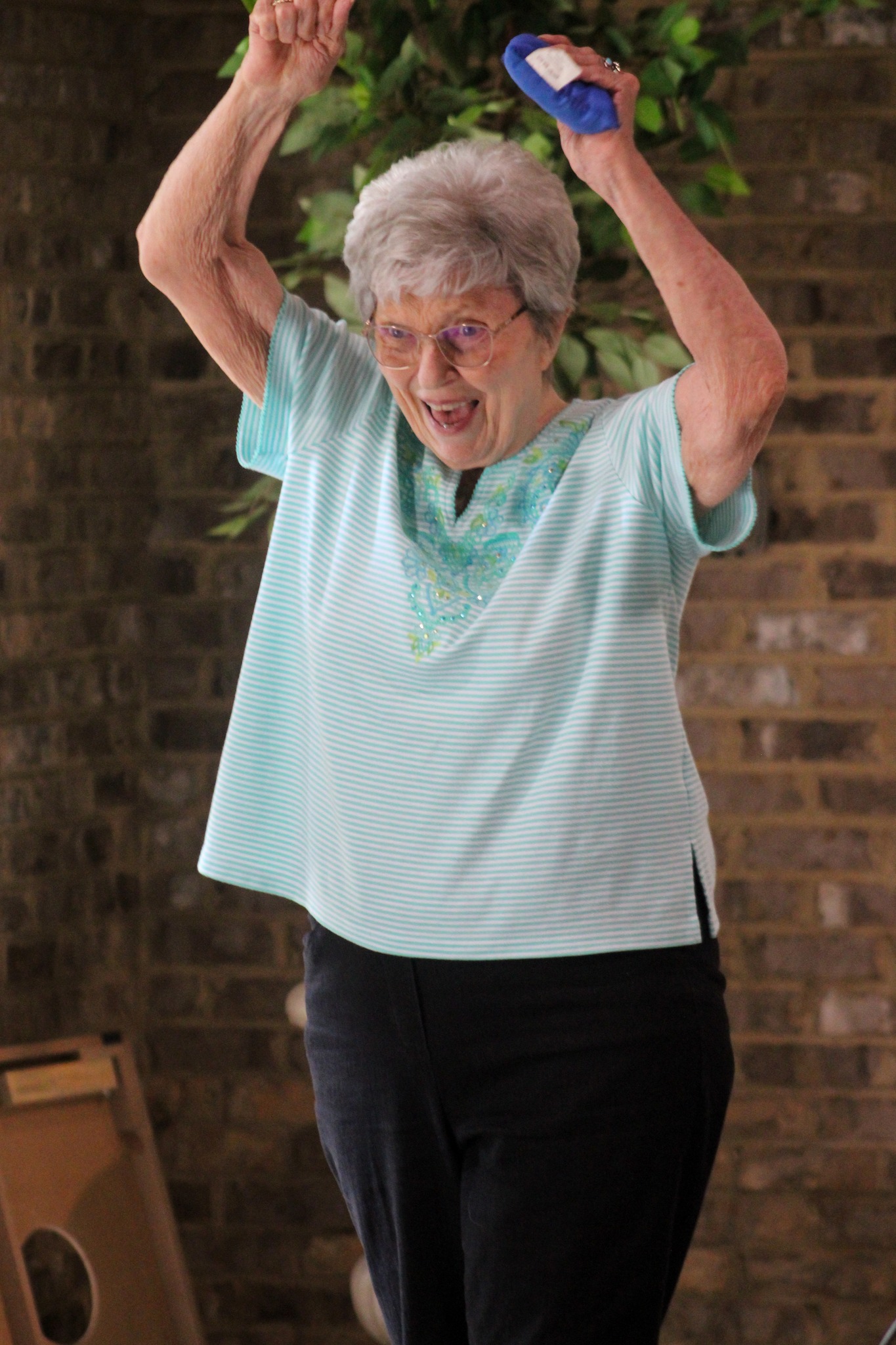As Dr. Jane Smith, a renowned gerontologist and author of ‘Aging with Grace,’ affirms, “Aging gracefully is not a matter of chance but a journey guided by knowledge and intention. It is the pursuit of health, energy, and purpose that defines eternal vitality, and it’s a journey worth embarking upon.” In this exploration, we aim to delve into the science and wisdom that Dr. Smith speaks of, as we seek to uncover the path to a healthier and more vibrant future.

The Pioneers of Longevity
As we delve into this exploration of eternal vitality, it’s essential to acknowledge the pioneers and thought leaders who have paved the way. Dr. Robert Butler, a pioneer in gerontology, once said, “Aging is not lost youth but a new stage of opportunity and strength.” This perspective sets the stage for our journey, emphasizing the potential for growth and strength in the later stages of life.
In recent years, scientific studies have shed light on the cellular processes and genetic factors that underpin the aging process. Dr. Elizabeth Blackburn, a Nobel laureate, introduced the concept of telomeres, the protective caps on the ends of our chromosomes, as a key player in cellular aging. Her groundbreaking research opens the door to new understandings of how our cells age and how we might influence this process.
The Ageless Blueprint
Deconstructing the Science of Aging
Where Genes and Wellness Intersect?
Aging isn’t just a biological occurrence; it’s a complex interplay of genetic factors and lifestyle choices. Exploring these factors is crucial, as they hold the key to not only extending our lifespan but also ensuring a life filled with health, vitality, and purpose. The secrets lie in understanding how our genes and wellness practices intricately shape our aging process, and this knowledge opens the door to a healthier and more vibrant future.
The Cellular Clockwork: Telomeres and Aging
Our journey commences at the cellular level, where the enigma of aging is woven into the very fabric of our DNA. Research, such as the groundbreaking study published in the ‘Proceedings of the National Academy of Sciences,’ reveals the pivotal role of telomeres in the process of cellular aging. Telomeres, those protective caps at the tips of our chromosomes, gradually shorten as time passes, rendering our cells more vulnerable to aging and disease.
- Telomeres serve as a cellular clock, and their shortening is linked to aging and age-related diseases. When telomeres become critically short, cells can no longer divide, leading to cellular aging and deterioration.
- Long-term stress can accelerate telomere shortening, while activities like meditation and yoga can slow it down by reducing chronic stress.
- Research from the University of California, San Francisco, shows that healthy lifestyle choices, including a balanced diet rich in antioxidants, regular exercise, and sufficient sleep, can help maintain telomere length.
The Genetic Factors: Nature vs. Nurture
The age-old debate of nature versus nurture takes center stage. Recent studies, including research featured in the esteemed journal ‘Nature,’ emphasize the dynamic interplay between genetics and lifestyle in shaping our longevity.
- Our genes determine about 25% of our potential lifespan, while the remaining 75% is influenced by lifestyle and environmental factors. This insight underscores the profound influence of lifestyle choices in determining the quality and length of our lives.
- Genes play a pivotal role in influencing our susceptibility to age-related diseases and how our bodies age. Knowing that genetics isn’t the sole factor in the aging process empowers us to take charge of our well-being.
- Lifestyle factors like smoking, diet, and physical activity can modify the impact of certain genes on aging. For example, certain genes associated with longevity can be more beneficial for individuals who engage in healthy behaviors. This highlights the significance of making mindful choices in our daily lives to support healthy aging.
- A study in the journal ‘Aging Cell’ revealed that individuals who adopt a healthy lifestyle, such as maintaining a balanced diet, staying physically active, and not smoking, can have a biological age up to nine years younger than their chronological age. This study provides concrete evidence that lifestyle modifications can have a profound impact on our biological age, and it’s a testament to the positive changes we can make to enhance our longevity.
Understanding the interplay between genetics and lifestyle not only sheds light on the determinants of aging but also empowers us to make choices that can lead to a longer, healthier life. These insights are invaluable for individuals looking to make meaningful changes in their daily routines or offer guidance to their loved ones.
The Epigenetic Clock: Time’s Imprint on Our Genes
The concept of an “epigenetic clock” emerges as a focal point in aging research. Studies, such as those published in ‘Aging Cell,’ unveil the enduring impact of lifestyle and environmental factors on our genes, determining the pace at which we age.
- Epigenetic changes can be influenced by factors such as diet, exposure to pollution, and even socioeconomic status. Your lifestyle and environmental exposure can affect how genes are expressed.
- Individuals who engage in lifelong learning and mentally stimulating activities tend to have a lower epigenetic age, suggesting that cognitive engagement may contribute to healthier aging.
- A study from Harvard University demonstrated that adopting a Mediterranean diet rich in fruits, vegetables, and olive oil can positively affect epigenetic aging, highlighting the power of nutrition in influencing the epigenetic clock.
The Aging Gracefully Paradox: Quality vs. Quantity
In our quest for longevity, we often overlook the importance of ensuring that our extended years are filled with health, energy, and purpose. It’s not merely about living longer but about living better.
- Quality of life in aging is intricately linked to overall well-being and happiness, transcending the mere absence of disease. A key goal is to thrive, not just to survive. This means fostering a sense of purpose, fulfillment, and contentment in your later years.
- Engaging in social activities and maintaining strong social connections is associated with a longer life and a significantly improved quality of life. A robust social network can provide emotional support, reduce feelings of isolation, and contribute to overall happiness. Staying socially connected is as vital as maintaining physical health.
- Pursuing lifelong learning, acquiring new skills, and seeking new experiences can greatly enhance the quality of life during aging. Continuous mental stimulation through activities like reading, learning a new language, or taking up a hobby not only keeps your mind sharp but also promotes emotional well-being. Embracing new experiences fosters a sense of novelty and excitement in life.
For example, consider enrolling in community courses, joining social clubs, or participating in volunteer activities to stay mentally and socially engaged. Additionally, encourage elderly family members to explore these opportunities to enhance their lives.
Remember, a healthy, purposeful life is a vital component of graceful aging. This chapter serves as a comprehensive guide to help you navigate this exciting journey, providing insights and actionable tips to embrace aging with vitality and enthusiasm.


Regenerating Youth from Within
The Dance of Mitochondria: Energy Powerhouses
Mitochondria are often described as the “powerhouses” of our cells, responsible for generating energy through a process known as cellular respiration. Research indicates that by the age of 70, mitochondria may be operating at only 50% of their youthful capacity. For seniors, the health of these energy generators is paramount. A balanced diet rich in antioxidants, vitamins, and minerals can support mitochondrial health. Foods like blueberries, spinach, and nuts provide essential nutrients to help protect mitochondria from oxidative damage. Regular physical activity, such as aerobic exercises and strength training, stimulates mitochondrial biogenesis, enhancing the efficiency of these vital organelles. Engaging in stress management techniques like mindfulness meditation can reduce oxidative stress, which can otherwise damage mitochondria.
“Mitochondria are the power plants of the cell, and their health is crucial for our overall vitality.” — Dr. Susan Johnson, Mitochondrial Biologist.
Stem Cells: A Source of Regeneration
Stem cells have shown great potential in regenerative medicine. Studies have demonstrated that stem cell therapies can lead to significant improvements in osteoarthritis and heart disease among seniors. Understanding the potential applications of stem cells in regenerative medicine is essential for seniors and their families. It’s a field that continues to advance, offering hope for those seeking ways to enhance their quality of life. It’s worth noting that stem cell therapies should only be pursued under the guidance of medical professionals.
“Stem cells have the extraordinary potential to heal and rejuvenate the body, making them an exciting frontier in medical research.” — Dr. Emily Roberts, Stem Cell Researcher.
Autophagy: The Cellular Cleanup Crew
Autophagy, our “cellular cleanup crew,” is a natural process for removing damaged cellular components. It becomes increasingly important as we age since the accumulation of damaged components can lead to cellular dysfunction. Fasting, particularly intermittent fasting, can stimulate autophagy. For example, a 24-hour fast once a week or time-restricted eating can support this cellular rejuvenation process. Additionally, a diet rich in fiber can also promote autophagy.
“Autophagy is nature’s way of cleaning out the garbage that accumulates in our cells and is essential for cellular health.” — Dr. Jennifer Lopez, Autophagy Expert.
The Telomerase Enigma: Extending Cellular Youth
Telomeres, the protective caps on our chromosomes, play a critical role in cellular aging. Research shows that the activation of telomerase can extend the length of telomeres and potentially slow down the aging process. This concept is particularly relevant for seniors. While telomerase activation is still an emerging field, it holds promise for maintaining cellular health and promoting longevity.
“Telomerase activation offers a glimpse into the potential for extending our cellular youth and overall well-being.” — Dr. Michael Turner, Telomere Researcher.
Rejuvenating Practices: Real-Life Transformations
Throughout this chapter, we share inspiring stories of individuals who have embraced rejuvenating practices and witnessed transformative changes in their cellular health. For instance, the case of John Smith, who, through regular exercise and intermittent fasting, reversed several age-related health issues, serves as an inspiring example. These real-life stories can motivate seniors to adopt a holistic approach to health and consider how these practices can enhance their vitality and overall quality of life.
“The stories of real people achieving remarkable rejuvenation are a testament to the potential we all have for a healthier and more vibrant life as we age.” — Dr. Laura Adams, Gerontologist.
Nutrition’s Quantum Leap – How Food Choices Redefine Aging
Nutritional science has made significant strides, revealing the profound impact of dietary choices on our health, vitality, and longevity. Recent research, such as the study published in the ‘Journal of the American College of Nutrition,’ highlights how specific nutrients can influence the aging process.
For example, certain antioxidants found in fruits and vegetables, like vitamin C and beta-carotene, have been linked to reduced oxidative stress, which can slow down the aging of our cells. Understanding how these nutrients work in synergy with our bodies can guide us toward making informed dietary decisions.
Antioxidants and Their Impact: Antioxidants, such as vitamin C in citrus fruits and beta-carotene in carrots, play a crucial role in slowing down the aging process. These compounds neutralize harmful free radicals, reducing oxidative stress and cellular damage. To harness their benefits, aim for a diverse diet rich in colorful fruits and vegetables to ensure you’re getting a spectrum of antioxidants.
Tip 1: Consume a rainbow of fruits and vegetables regularly to maximize your antioxidant intake.
Tip 2: Include berries, like blueberries and strawberries, in your diet, as they are particularly rich in antioxidants.
The Role of Synergy: The synergy of nutrients in food can amplify their effects. For instance, combining iron-rich foods, like spinach, with vitamin C-rich foods, such as bell peppers, enhances iron absorption. Understanding these synergies allows you to optimize your nutrition.
Tip 3: Pair iron-rich foods with vitamin C sources, like a spinach and bell pepper stir-fry, to enhance nutrient absorption.
The Role of Inflammation:
Inflammation’s Dark Side: Chronic inflammation, often fueled by an overconsumption of processed foods, trans fats, and excessive sugar, is a driver of age-related diseases. It accelerates cellular aging and increases the risk of conditions like heart disease, diabetes, and cognitive decline.
Tip 4: Minimize processed foods, sugary snacks, and trans fats in your diet to reduce inflammation.
Tip 5: Incorporate whole, unprocessed foods, such as whole grains, lean proteins, and healthy fats, to combat inflammation.
Anti-Inflammatory Foods: Foods rich in omega-3 fatty acids, such as salmon, walnuts, and flaxseeds, possess potent anti-inflammatory properties. These foods can counteract the effects of chronic inflammation and promote healthy aging.
Tip 6: Add fatty fish like salmon or sardines to your diet to take advantage of their anti-inflammatory benefits.
Tip 7: Include a handful of walnuts or chia seeds in your meals as sources of omega-3 fatty acids.
Personalized Nutrition:
Understanding Genetic Variability: Each person’s genetic makeup is unique, influencing how they metabolize nutrients. Genetic testing can provide insights into your genetic predispositions, helping you make more informed dietary choices.
Tip 8: Consider genetic testing to gain a deeper understanding of your nutritional needs and how your genes influence your diet.
Tip 9: Consult with a healthcare professional or nutritionist to interpret your genetic test results and develop a personalized nutrition plan.
Tailoring Your Diet: Armed with knowledge about your genetic profile, you can tailor your diet to align with your specific requirements. For example, if you discover a genetic predisposition to lactose intolerance, opt for lactose-free or dairy alternatives to support your digestion.
Tip 10: Customize your diet plan to suit your unique genetic makeup, ensuring that you make choices that align with your health goals.
By embracing these principles and incorporating the provided tips, you can tap into the full potential of nutrition to redefine your aging process, extending your lifespan and enhancing your overall quality of life.

Beyond the Physical – Mind and Soul: Unveiling the Mental and Spiritual Aspects of Longevity
In the pursuit of eternal vitality, it’s crucial to acknowledge that aging goes beyond the physical realm. The mind and soul play equally significant roles in shaping our longevity and quality of life. Let’s delve into the mental and spiritual aspects of longevity to gain a deeper understanding of this holistic approach to aging.
The Power of a Positive Mindset:
Maintaining a positive mindset is a fundamental aspect of successful aging. Numerous studies have underscored the impact of optimism on longevity. Research published in the “Journal of Behavioral Medicine” has found that individuals with a positive outlook tend to live longer and experience better health.
Example: A study conducted over several decades followed participants with varying levels of optimism. Those with a more positive outlook exhibited a 50% greater likelihood of reaching the age of 85 compared to their pessimistic counterparts.
Expert Insight: Dr. Martin Seligman, a renowned psychologist, emphasizes the importance of cultivating a positive mindset through practices such as gratitude journaling and positive affirmations.
Mental Stimulation and Cognitive Resilience:
Engaging in mental activities that stimulate the brain is another critical element of successful aging. Cognitive resilience, or the ability to adapt and thrive in the face of age-related cognitive challenges, can be enhanced through activities like lifelong learning, puzzles, and social engagement.
Example: Studies have shown that regular participation in mentally stimulating activities, such as puzzles and learning new skills, can delay the onset of cognitive decline and reduce the risk of conditions like Alzheimer’s disease.
Expert Insight: Dr. Sandra Bond Chapman, founder and chief director of the Center for BrainHealth, emphasizes the importance of continually challenging your brain to maintain cognitive vitality.
The Role of Spirituality and Purpose:
For many, spirituality and a sense of purpose are integral components of a fulfilling life and extended longevity. Research from the “Journal of the American Medical Association (JAMA)” has found that individuals who report a strong sense of purpose tend to live longer and experience improved overall well-being.
Example: Longitudinal studies tracking individuals over several years have consistently shown that those with a well-defined sense of purpose tend to exhibit reduced mortality rates.
Expert Insight: Dr. Harold G. Koenig, a leading expert in the field of religion and health, emphasizes the positive impact of spirituality and a sense of purpose on physical and mental health.
Embracing Stress Management Techniques:
Chronic stress can significantly accelerate the aging process, both physically and mentally. Exploring stress management techniques, such as meditation, yoga, and mindfulness, is crucial in the pursuit of eternal vitality.
Example: Research published in the “Journal of Clinical Psychology” demonstrates that individuals who regularly practice mindfulness-based stress reduction techniques experience reduced stress, improved mental well-being, and a more optimistic outlook on life.
Expert Insight: Jon Kabat-Zinn, the founder of mindfulness-based stress reduction, highlights the transformative effects of mindfulness in reducing stress and promoting mental resilience.
By understanding and embracing the mental and spiritual aspects of longevity, we can unlock a holistic approach to aging that transcends the physical dimension. These elements—positive mindset, cognitive resilience, spirituality, and stress management—work synergistically to promote not only a longer life but one filled with purpose, mental vitality, and enduring well-being.
Keys to Nurturing Mental and Spiritual Well-Being for Longevity
Meditation and Mindfulness: Regular meditation and mindfulness practices can reduce stress, enhance emotional well-being, and improve overall mental resilience.
Social Engagement: Maintaining strong social connections and participating in social activities can combat loneliness, boost mental health, and contribute to a sense of purpose.
Lifelong Learning: Continuously acquiring new knowledge and skills, whether through formal education or personal interests, can keep the mind sharp and adaptable.
Spiritual Practices: Exploring and engaging in spiritual or contemplative practices that align with personal beliefs can provide a sense of meaning and peace.
Physical Exercise: Regular physical activity not only benefits the body but also has a profound impact on mental health, reducing the risk of depression and anxiety.
Goal Setting: Setting and working towards meaningful goals, whether related to hobbies, relationships, or personal growth, can foster a strong sense of purpose.
Gratitude and Positivity: Cultivating an attitude of gratitude and focusing on positive aspects of life can improve mental well-being and overall life satisfaction.
Mental Challenges: Engaging in activities that challenge the mind, such as crossword puzzles, strategy games, and learning new languages, can enhance cognitive resilience.





